Key Highlights
Learn the Basics: Understand hand rankings, betting rounds, and essential poker terms.
- Explore Poker Variants: Discover popular options like Texas Hold’em and Omaha.
- Master the Rules: Grasp the flow of the game, from blinds to the showdown.
- Develop Basic Strategies: Get tips on starting hands, reading opponents, and managing your bankroll.
- Choose Your Arena: Decide between online and offline poker, each with its own advantages.
Introduction
A poker game is an exciting mix of skill and strategy. This beginner’s guide will help you learn the basics of poker. We will cover important parts, like hand rankings, which show the best combinations. You will also learn about betting rounds, where players take smart risks. Get ready to start your journey in the world of poker!
Understanding the World of Poker
Poker is not just a game of luck. It involves taking calculated risks, making smart choices, and reading your opponents. Whether you want to enter high-stakes tournaments or play casual games, knowing the basics is very important.
This guide will cover everything from simple rules to more advanced ideas. It will help you have a strong base to grow your skills. So, let’s start our journey into the exciting world of poker.
The Origins of Poker: A Brief History
The history of poker is very interesting and full of surprises. We are not sure where exactly it started, but many experts say its roots go back to 16th-century Europe. The French game “Poque” is one of its early versions. This game made its way to New Orleans in the 19th century.
New Orleans is a mix of cultures and a place where many people played games on riverboats. This city helped poker grow and change into what we know today. Over the years, poker went from being played in saloons by the Mississippi River to the fancy card rooms we see now.
In 1970, the World Series of Poker (WSOP) started, which was a key moment in poker history. This yearly tournament in Las Vegas brings together top players from around the world. They show their amazing skills and have a chance to win big prizes.
Different Styles and Variations of Poker
The world of poker has many exciting types, each with its own rules and strategies. One popular version is Texas Hold’em. In this game, players use two private “hole cards” along with five community cards. The goal is to make the best five-card poker hand.
If you want a game with more action, Omaha is a great choice. In Omaha, players get four hole cards. They must use exactly two of those cards and mix them with three community cards to form their final hand.
There are also poker types like Seven-Card Stud and Draw Poker. Each has its own unique style. Some players enjoy the careful strategy needed, while others like a faster pace. No matter your preference, there are many exciting poker variants to choose from.
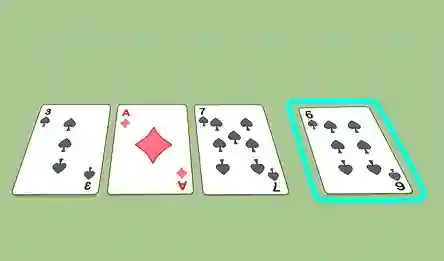
Preparing to Play Poker
Before you start your first poker game, it’s good to prepare. Doing some simple tasks can really improve how you play. You need to gather the right equipment and make your playing area comfortable. A bit of preparation can help a lot.
If you’re having a poker night at home or going to a busy casino, the right tools and setting are important. Let’s look at the main things you need to be ready for your poker game.
Essential Equipment and Resources Every Beginner Needs
To start playing poker, you need a few important things. First, get a set of poker chips. These chips come in different values for easy playing and betting. Make sure to choose a good set that’s strong and looks nice.
Next, you’ll need a deck of playing cards. Pick a high-quality deck that shuffles easily and lasts a long time. It’s a good idea to have more than one deck for bigger groups or faster games.
Lastly, you might want private tables for your poker games. While these are not required, they can give you a special space. Private tables often have smooth felt surfaces for easy card handling and built-in trays for chips to keep things organized. They can make the game more fun and enjoyable for everyone.
Setting Up Your First Poker Game at Home
Hosting a poker game at home is a great way to have fun with friends. First, pick a good spot in your house. You need enough space for a table and chairs. Having private tables made for poker is best, but it’s not a must.
Next, set up comfy seats around the table for all the players. Make sure the area is well-lit so everyone can see their cards. Good lighting helps, but some dim light can make the night feel special.
To create a warm and fun vibe, lower the lights, prepare tasty snacks and drinks, and play some music in the background. When everything is ready, your poker night will be memorable and a lot of fun for everyone.
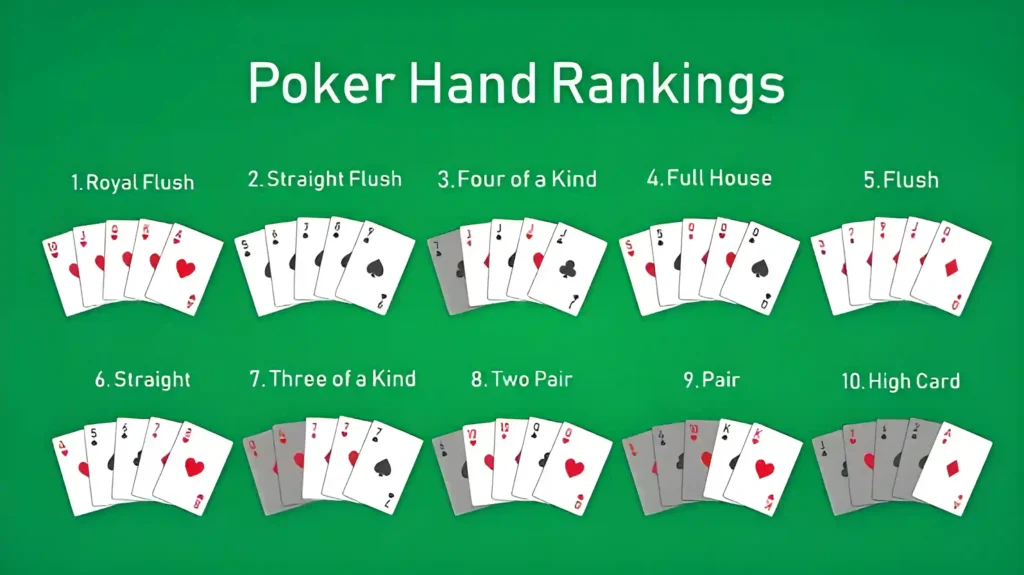
The Rules of Poker: An Overview
Understanding the basic rules of poker is important because many versions of the game exist. The main goal in poker is to create the best five-card hand. You do this by using a mix of your hole cards (which are your private cards dealt face down) and community cards (which are the shared cards placed face up on the table).
At the end of the last betting round, the player with the best hand wins the pot. Betting is a key part of poker. Players place bets with chips to make the game more exciting, trick their opponents, or make them drop out of the hand. Now, let’s look at some specific rules to help explain these important points better.
Understanding Poker Hand Rankings
Poker hand rankings show us the strength of different card combinations to decide the winner at the showdown. Understanding these rankings is very important. The best hand is a Royal Flush. This is made up of A-K-Q-J-10 all in the same suit, and it cannot be beaten.
Next is a Straight Flush, which has five cards in sequential order and all of the same suit. A Four of a Kind is made up of four cards that are the same rank. A Full House has three cards of one rank and a pair of another rank.
A Flush has five cards that are all the same suit. A Straight has five cards in sequential order, but they do not need to be the same suit. Three of a Kind means three cards of the same rank. Two Pair has two separate pairs, while One Pair has just one pair. The weakest hand is a High Card, where the winning card is the highest one if no other hand is formed.
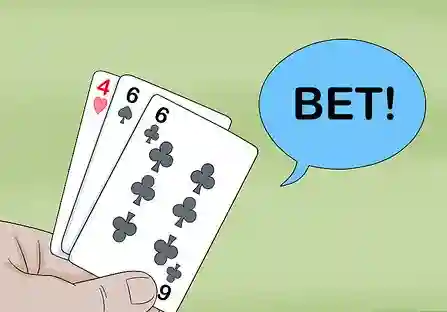
The Role of Blinds and Antes in Poker
In poker, blinds and antes are very important. They help make the game exciting and keep the betting going.
Blinds are forced bets made by two players before the cards are given out. The player next to the dealer pays the small blind, which is usually half of the big blind. The big blind, which is double the small blind, is paid by the player next to the small blind. These blinds create the first pot and make players want to join the hand.
Antes are small bets that all players must pay before each hand. Unlike blinds, which move around based on the dealer button, antes stay the same for all players. This makes the pot bigger and gets more players to take part in the game.
Step-by-Step Guide to Playing Your First Hand
Taking your first steps in a poker game can feel scary, but we can make it easier by dividing it into smaller stages. This guide will help you understand the key parts of playing your first hand, like knowing table positions and making smart choices.
Each part of a poker hand gives you chances to decide and use strategy. By learning these basics, you will feel more sure of yourself. You can then handle the game and make good decisions during each hand you play.
Step 1: Getting Familiar with the Table Positions
In poker, knowing about table positions is very important for a good game. The dealer button is a moving marker that shows who the dealer is for that hand. The game goes in a clockwise direction starting from the player to the left of the button, called the small blind.
The player next to the small blind places the big blind. This amount is the least you can bet for the first round. Players in early positions make their moves first in each betting round. This can be tough because they don’t know much about what their opponents have.
Players in late positions get to watch what others do before it’s their turn. They can learn a lot about the strength of their opponents’ hands from their betting patterns and behaviors.
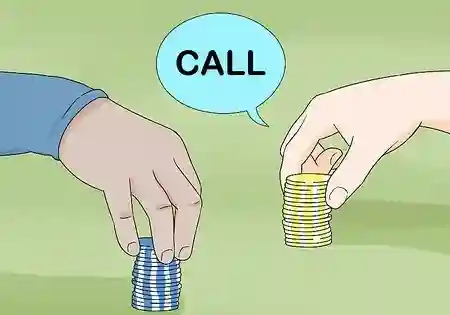
Step 2: The Pre-Flop: Making Your First Move
The pre-flop is the first betting round in poker. It happens after each player gets their two hole cards but before any community cards are dealt. At this stage, you will look at how good your hand is and decide what to do based on where you sit at the table and what players before you did.
If you are in an early position and have a strong hand, think about raising to build the pot. This also makes it harder for weaker hands to stay in the game. A raise means your opponents have to pay more to see the flop.
On the other hand, if your hand is weak in early position, it’s usually best to fold to avoid losing more money. The pre-flop stage is important. It helps set the tone for the hand and gets you ready for later rounds.
Step 3: The Flop: Evaluating Your Hand
The flop is an important part of a poker hand. It shows three community cards face up in the center of the table. All players share these cards, and they can greatly change how strong each player’s hand is.
Now is the time to think carefully about your hand. Look at how it works with the flop and what your opponents might have. If the flop works well with your cards, your poker hand is probably better.
If the flop does not help your hand or you think an opponent has a stronger hand, be careful. Think about where you are sitting, watch how others are betting, and choose whether to keep betting, call a bet, or fold.
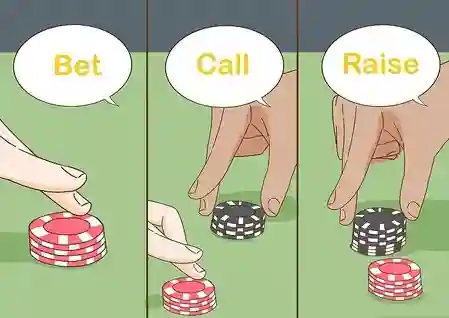
Step 4: The Turn: Raising the Stakes
After the flop, the turn card is dealt face up. This shows one more community card and makes the hand more interesting. With four out of five community cards revealed, players can see how strong their hands might be.
The turn card can create new chances to make straights, flushes, and full houses. If this card strengthens your hand a lot, think about raising your bet to grow the pot. This will help you take advantage of your good position.
But, be careful if the turn card does not help your hand. Also, if an opponent starts betting aggressively, think twice. Look at the situation and weigh the risks and rewards. Make wise choices to boost your chances of winning.
Step 5: The River and Showdown: Revealing the Winner
The river is the last community card. Its reveal shows it’s time for the big moment of the game. With all cards on the table, the final betting round starts. Players now need to think hard about how strong their hands are. They will decide to bet, call, or fold.
The showdown is a key point in poker. Players who stayed in will show their hands to see who wins. The player with the best five-card hand, using their hole cards and the community cards, takes the pot.
If there’s a tie, the pot gets split among the players with the best hands. Knowing the rules and strategies about the river and showdown is very important. Doing this can help you win more often.
Strategies for Beginners
Mastering some basic poker strategies can help you make better decisions and improve your game. If you are new, pay attention to these key ideas:
It is important to know your starting hands, spot betting patterns, and manage your bankroll for early wins. Keep in mind that poker is a long game, not a quick one. Being patient, staying disciplined, and always learning will help you get better.
Basic Poker Strategy: Tips for New Players
For beginners, understanding strong starting hands is very important in poker. The best hands are high pairs like AA, KK, and QQ, as well as big aces like AK. These hands often win at showdown, so it is smart to play them aggressively when you start.
As you gain more experience, you will learn about different hand ranges. You will also know how to adjust your strategies based on where you sit at the table.
Another important tip for beginners is to watch how your opponents bet. Notice if they bet aggressively or passively with certain hands. Look for any betting tells that might show the strength of their hands. By catching these hints, you can make better choices about when to bet, call, or fold. Good poker strategy is about observing, analyzing, and taking smart risks.
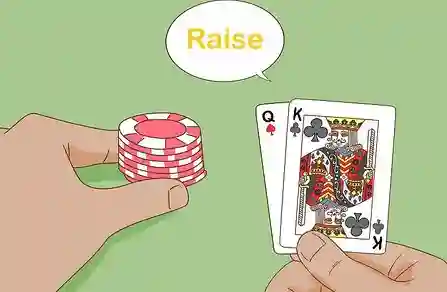
Understanding Your Opponents: The Psychology of Poker
Poker psychology is very important for getting an advantage over your opponents. When you watch your fellow players, you can learn a lot about how they think and what hands they might have. Look closely at their betting, their body language, and anything they say.
For instance, if a player starts betting a lot all of a sudden, they might have a strong hand. On the other hand, if a player avoids eye contact or seems nervous, they could be bluffing. Each player has “tells.” These are little signs that give clues about their hand.
It takes practice to read these tells and to pay attention. If you get good at poker psychology, you can predict what your opponents will do. This will help you make better choices and improve your chances of winning.
Common Mistakes to Avoid as a Beginner
As you start your poker journey, you will likely face some common mistakes. However, if you notice these mistakes early, you can avoid them and greatly boost your chances of winning.
Two very common mistakes new players make are valuing their hands too highly and ignoring the value of position. Let’s look at these errors more closely so you can avoid them and enhance your game.
Overvaluing Hands: A Common Pitfall
One big mistake new poker players make is thinking their hands are better than they are. This can lead to big bets and poor choices. It’s easy to get emotional about a high card or good chance to draw, but you need to stay objective.
Keep in mind that the strength of your poker hand depends on what your opponents could have and the community cards on the table. Just having an ace or two face cards doesn’t mean you will win.
You should make smart choices based on the chances and possible results. It’s okay to fold even if you think your hand is strong, especially if the betting shows that your opponents may beat you. Getting past the urge to overvalue your cards is important if you want to do well in poker.
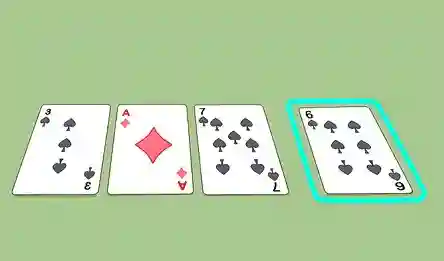
The Importance of Position in Poker Strategy
Position in poker is about where you sit in relation to the dealer button. It is very important because it affects your strategy. Knowing how position works helps you make better bets, calls, and folds.
If you are in late position, which means you are closer to the button, you have a big edge. You can watch what your opponents do before you take action. This gives you useful information about what hands they might have. On the other hand, players in early position have to act first. This puts them at a disadvantage since they have less information.
Your position also influences which hands you should play. It affects how you should act during each betting round. To get better at poker, learn to be aware of your position and how it impacts your game.
Moving Beyond Basics
Once you understand the basic rules and strategies of poker, a world of fun opportunities opens up. You can try out different games like Draw Poker and Stud Poker. This will help you learn and face new challenges.
If you want the excitement of competition and the chance to win big, joining poker tournaments can give you a special and thrilling experience. Let’s explore these advanced parts of poker and grow your skills and knowledge.
Exploring Different Types of Poker Games
While Texas Hold’em is the main game in poker, trying out other games can help you improve your skills and face new challenges. Draw Poker is a classic type of poker. In this game, players get a full hand of cards face down. After that, there are rounds of betting, and players can choose to discard some cards and draw new ones.
Stud Poker is another popular game. It has a special way of dealing cards. Players receive a mix of face-down and face-up cards during the hand. This adds some strategy and thinking to the game. There are different types of Stud Poker, like Seven-Card Stud and Razz, which have their own ways of ranking hands.
Each type of poker has its own rules, strategies, and details. By trying different games, you will expand your knowledge of poker. You will learn to adjust to different game scenarios and make better decisions overall.
Participating in Your First Poker Tournament
Poker tournaments are a fun way to test your skills against many players. In these events, players compete for a prize pool and aim to be the last poker player standing.
Tournaments have a blind structure that gets harder over time. This creates tension and encourages players to act quickly. Big events like the World Series of Poker (WSOP) and the World Poker Tour (WPT) draw professional players from all over the world and offer life-changing prizes.
Joining a poker tournament, even if it is a local one, can be very exciting. It lets you challenge your skills, adapt to changes, and possibly win bragging rights along with some prize money.
Online Poker for Beginners
The digital age makes it easy to play poker online. You can now enjoy poker right at your fingertips. Online poker offers a great way for beginners to learn the game. You can practice your skills and try out different types of games at your own speed.
There are many online poker platforms to choose from. Picking the right one can make your gaming experience better. Let’s look at what to think about when you choose an online poker platform. We will also see how online poker is different from offline poker.

Choosing the Right Online Poker Platform in India
Choosing the right online poker platform in India is important for a safe and fun gaming experience. When you pick one, think about things like how well the platform is known, how secure it is, the variety of games offered, and how easy it is to use.
Look for popular and trustworthy gaming apps that have a good history of fair play and paying winners. Make sure the platform has strong security measures. These should include encrypted transactions and secure servers, keeping your personal and financial details safe.
Having many poker variants and different tournament styles for various skill levels makes the gaming more enjoyable. Also, look for platforms that provide good customer support through options like live chat, email, and phone. This way, any questions or issues can be sorted out quickly.
Online vs. Offline Poker: What’s Best for Beginners?
As a beginner, choosing between online and offline poker depends on what you like and how you want to learn.
Online poker is easy and available all the time. You can play whenever you want in the comfort of your home. It also lets you play with people from different places.
On the other hand, offline poker is played in casinos or at homes. It gives you the traditional poker experience. You can see your opponents’ body language and talk to them, which might help you win by reading their physical cues.
Both ways have good points and bad points for beginners. Online poker lets you play fast and at lower stakes, making it easier to learn and manage your money. Offline poker, however, gives you the real casino feel and the chance to watch experienced players closely.
In the end, which one you choose depends on your personal preferences and goals.
Conclusion
Mastering the basics of poker is a journey that takes time, strategy, and practice. For beginners, it’s important to know the game’s history, rules, and different styles. You should start by learning about hand rankings, blind structures, and common mistakes to avoid. As you get better, you can look into advanced strategies and different poker variations. Developing a healthy mindset is key. Focus on being patient, disciplined, and open to learning. Whether you play online or in person, setting realistic goals and learning from your losses will help you grow as a player. Remember, poker is more than just luck; it is a game of skill and strategy that rewards those who work hard to learn.
Frequently Asked Questions
What is the best way for a beginner to learn poker?
For beginners who are learning poker, it is important to practice on gaming apps. Reading books and articles also helps. Watching skilled players is another great way to learn. By practicing regularly and understanding the theory, you can learn poker faster.
How much money should I start with when playing poker?
When you start a poker game, it’s smart to have a bankroll that lets you bet comfortably. This way, you won’t risk losing too much money. Start with a small bet size. As your skills and confidence improve, you can slowly raise your bets.
Can poker be played professionally by beginners?
Professional poker takes dedication and great skill. However, it’s possible for beginners to succeed. There is a learning curve, but with regular practice and a strong grasp of the game, beginners can work to turn their love for poker into a real career.
What are the most common tells in poker?
Poker tells can be different, but some common signs include quick changes in betting habits, shaking hands, not making eye contact when bluffing, and faster breathing or heartbeats. Watching for these little signs can give you important clues about what cards your opponent might have.
Are online poker games rigged?
Reputable online poker sites use Random Number Generators (RNGs). This helps keep games fair and honest. Also, watchdog groups check these platforms. This reduces the chance of cheating.
Cultivating a Healthy Poker Mindset
A healthy poker mindset needs you to control your emotions, be disciplined, and have realistic goals. It is important to accept losses calmly. Managing tilt and concentrating on long-term growth can improve your mental health. This also helps with responsible gaming ethics.
The Importance of Patience and Discipline
Patience and discipline are very important strategies in poker. Don’t try to chase your losses. Instead, make smart decisions and be aware of when to leave the game. Controlling your emotions and staying disciplined are key for success over time.
Learning from Losses: The Key to Becoming a Better Player
In poker, you will make mistakes. Look at losses as a chance to learn. Study how you play, find areas you can improve, and ask for tips from experienced players. Accept losses as part of growing your skills.
Setting Realistic Goals and Expectations as a Beginner
As a beginner, it is important to set realistic poker goals. Focus on slowly getting better at your skills and knowledge instead of trying to make quick money. Take the time to celebrate small wins and enjoy the learning journey ahead.


5 Comments
Pingback: EPT Prague & Live Spin & Go Championship Packages
Pingback: Nawazuddin Siddiqui's Big Cash Poker Ad Stirs Controversy,
Pingback: Teen Patti vs Poker Differences: A Card Game Guide - POKERBOL
Pingback: Michael Ian Black's Epic Freakout: The Big Game on Tour's
Pingback: Poker Tips for Beginners: Online Poker Strategy Tips